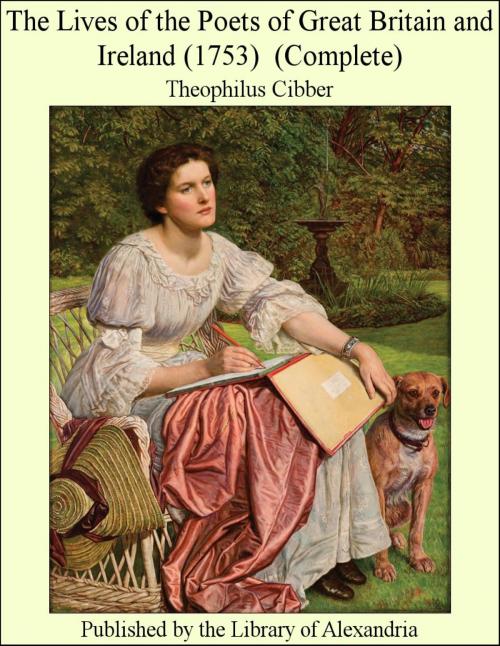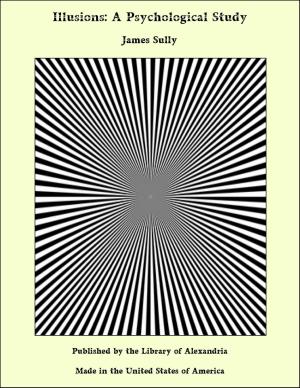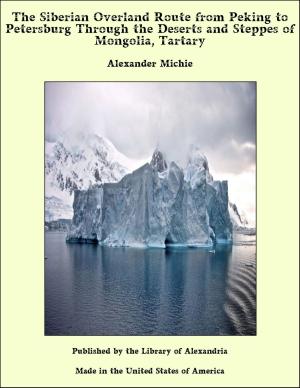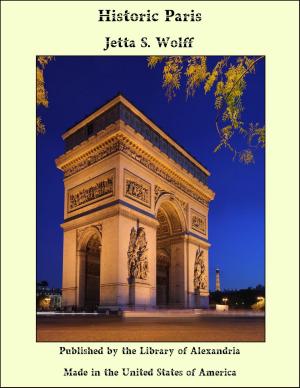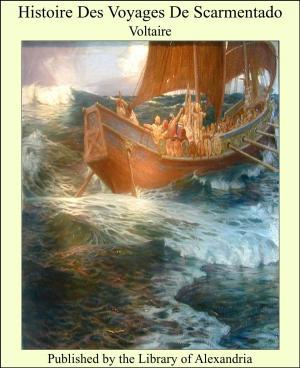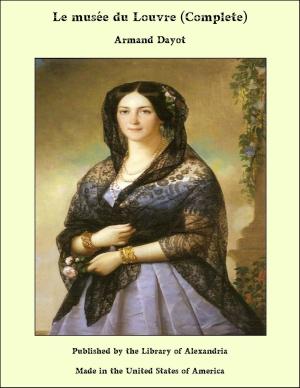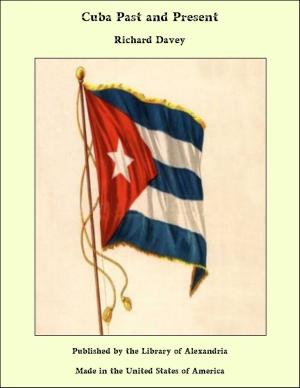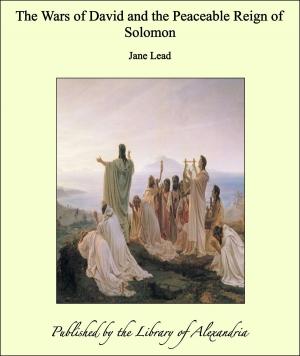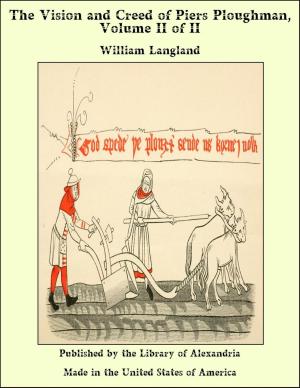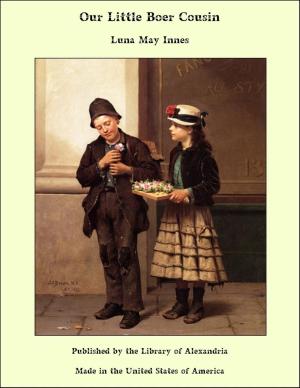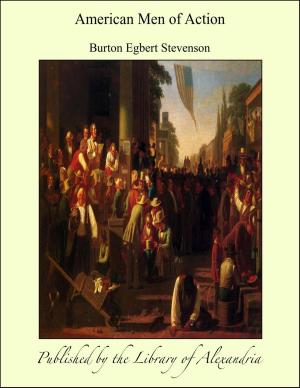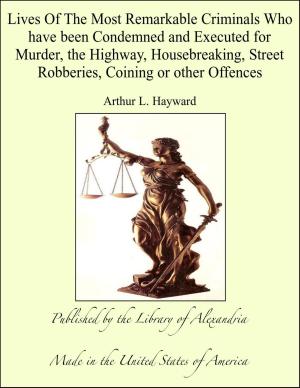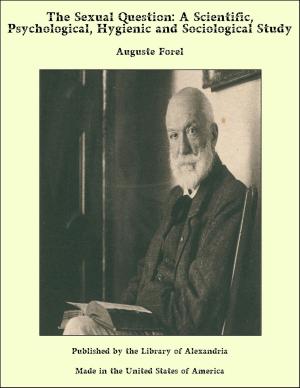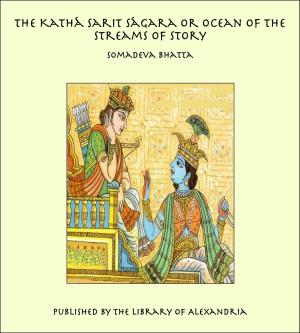The Lives of the Poets of Great Britain and Ireland (1753) (Complete)
Nonfiction, Religion & Spirituality, New Age, History, Fiction & Literature| Author: | Theophilus Cibber | ISBN: | 9781465503237 |
| Publisher: | Library of Alexandria | Publication: | March 8, 2015 |
| Imprint: | Language: | English |
| Author: | Theophilus Cibber |
| ISBN: | 9781465503237 |
| Publisher: | Library of Alexandria |
| Publication: | March 8, 2015 |
| Imprint: | |
| Language: | English |
It has been observed that men of eminence in all ages, and distinguished for the same excellence, have generally had something in their lives similar to each Other. The place of Homer's nativity, has not been more variously conjectured, or his parents more differently assigned than our author's. Leland, who lived nearest to Chaucer's time of all those who have wrote his life, was commissioned by king Henry VIII, to search all the libraries, and religious houses in England, when those archives were preserved, before their destruction was produced by the reformation, or Polydore Virgil had consumed such curious pieces as would have contradicted his framed and fabulous history. He for some reasons believed Oxford or Berkshire to have given birth to this great man, but has not informed us what those reasons were that induced him to believe so, and at present there appears no Other, but that the seats of his family were in those countries. Pitts positively asserts, without producing any authority to support it, that Woodstock was the place; which opinion Mr. Camden seems to hint at, where he mentions that town; but it may be suspected that Pitts had no Other ground for the assertion, than Chaucer's mentioning Woodstock park in his works, and having a house there. But after all these different pretensions, he himself, in the Testament of Love, seems to point out the place of his nativity to be the city of London, and tho' Mr. Camden mentions the claim of Woodstock, he does not give much credit to it; for speaking of Spencer (who was uncontrovertedly born in London) he calls him fellow citizen to Chaucer. The descent of Chaucer is as uncertain, and unfixed by the critics, as the place of his birth. Mr. Speight is of opinion that one Richard Chaucer was his father, and that one Elizabeth Chaucer, a nun of St. Helen's, in the second year of Richard II. might have been his sister, or of his kindred. But this conjecture, says Urry, seems very improbable; for this Richard was a vintner, living at the corner of Kirton-lane, and at his death left his house, tavern, and stock to the church of St. Mary Aldermary, which in all probability he would not have done if he had had any sons to possess his fortune; nor is it very likely he could enjoy the family estates mentioned by Leland in Oxfordshire, and at the same time follow such an occupation. Pitts asserts, that his father was a knight; but tho' there is no authority to support this assertion, yet it is reasonable to suppose that he was something superior to a common employ. We find one John Chaucer attending upon Edward III. and Queen Philippa, in their expedition to Flanders and Cologn, who had the King's protection to go over sea in the twelfth year of his reign. It is highly probable that this gentleman was father to our Geoffry, and the supposition is strengthened by Chaucer's first application, after leaving the university and inns of law, being to the Court; nor is it unlikely that the service of the father should recommend the son
It has been observed that men of eminence in all ages, and distinguished for the same excellence, have generally had something in their lives similar to each Other. The place of Homer's nativity, has not been more variously conjectured, or his parents more differently assigned than our author's. Leland, who lived nearest to Chaucer's time of all those who have wrote his life, was commissioned by king Henry VIII, to search all the libraries, and religious houses in England, when those archives were preserved, before their destruction was produced by the reformation, or Polydore Virgil had consumed such curious pieces as would have contradicted his framed and fabulous history. He for some reasons believed Oxford or Berkshire to have given birth to this great man, but has not informed us what those reasons were that induced him to believe so, and at present there appears no Other, but that the seats of his family were in those countries. Pitts positively asserts, without producing any authority to support it, that Woodstock was the place; which opinion Mr. Camden seems to hint at, where he mentions that town; but it may be suspected that Pitts had no Other ground for the assertion, than Chaucer's mentioning Woodstock park in his works, and having a house there. But after all these different pretensions, he himself, in the Testament of Love, seems to point out the place of his nativity to be the city of London, and tho' Mr. Camden mentions the claim of Woodstock, he does not give much credit to it; for speaking of Spencer (who was uncontrovertedly born in London) he calls him fellow citizen to Chaucer. The descent of Chaucer is as uncertain, and unfixed by the critics, as the place of his birth. Mr. Speight is of opinion that one Richard Chaucer was his father, and that one Elizabeth Chaucer, a nun of St. Helen's, in the second year of Richard II. might have been his sister, or of his kindred. But this conjecture, says Urry, seems very improbable; for this Richard was a vintner, living at the corner of Kirton-lane, and at his death left his house, tavern, and stock to the church of St. Mary Aldermary, which in all probability he would not have done if he had had any sons to possess his fortune; nor is it very likely he could enjoy the family estates mentioned by Leland in Oxfordshire, and at the same time follow such an occupation. Pitts asserts, that his father was a knight; but tho' there is no authority to support this assertion, yet it is reasonable to suppose that he was something superior to a common employ. We find one John Chaucer attending upon Edward III. and Queen Philippa, in their expedition to Flanders and Cologn, who had the King's protection to go over sea in the twelfth year of his reign. It is highly probable that this gentleman was father to our Geoffry, and the supposition is strengthened by Chaucer's first application, after leaving the university and inns of law, being to the Court; nor is it unlikely that the service of the father should recommend the son
